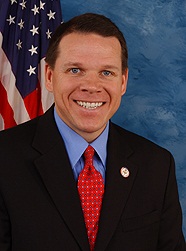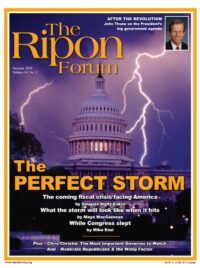How the Health Care Law will Impact Small Business
 For centuries, small business owners have encouraged prosperity and vitality in this great nation. These entrepreneurs epitomize the American ingenuity that has allowed the United States to become an economic powerhouse in the global marketplace. Without small businesses, we would no longer have the resources we need to continue producing cutting-edge products and services that meet consumer demand worldwide.
For centuries, small business owners have encouraged prosperity and vitality in this great nation. These entrepreneurs epitomize the American ingenuity that has allowed the United States to become an economic powerhouse in the global marketplace. Without small businesses, we would no longer have the resources we need to continue producing cutting-edge products and services that meet consumer demand worldwide.
In order to help keep small businesses on the forefront of the markets, it is critical that leaders in Washington foster an environment that encourages creativity and promotes free enterprise. Unfortunately, policies and programs that are being pushed by President Obama’s Administration and Majority Leaders in Congress have made small business owners subject to a constant stream of higher taxes, more regulations and more mandates that will discourage entrepreneurs and force employers to cut jobs.
These days, small businesses are more hesitant than ever to expand or hire new workers due to the overwhelming uncertainty created by Washington’s anti-small business agenda. Employers are struggling to understand the implications that the recently enacted government takeover of health care will have on their businesses. For many, the new health care law will raise health insurance premiums, hike taxes, require additional paperwork and make it more difficult to survive in an already tough economy.
These days, small businesses are more hesitant than ever to expand or hire new workers due to the overwhelming uncertainty created by Washington’s anti-small business agenda.
According to a recently updated analysis from the nonpartisan Congressional Budget Office, the health care law is expected to cost at least $115 billion more than the $940 billion previously estimated. Add in the reconciliation bill that included a package of “fixes” to the health care legislation, and the cost for this health care overhaul jumps to more than $1.2 trillion. All that money has to come from somewhere, so the law includes $569.2 billion in tax increases that will fall heavily on small businesses and other employers. The idea of forcing our nation’s job creators to carry the financial burden of the health care law is absurd.
Adding insult to injury, the law includes a new 1099 reporting mandate that will place an enormous burden on employers. Small business owners will be required to file a 1099 form for each purchase of goods or services of $600 or more per year from another entity. Retail and wholesalers of expensive products would be forced to file hundreds or even thousands of 1099s, solely for ordering inventory. Because the new law will require the filing of 1099s on goods as well as services, the number of 1099s that must be filed will increase exponentially.
In a feeble attempt to offset the cost of more Washington mandates and tax hikes, the Obama Administration spent millions of taxpayer dollars in an effort to promote its so-called small business health care tax credit. The credit was supposed to apply to companies with fewer than 25 workers and average annual wages under $50,000 that provide health care coverage. However, due to the complicated eligibility rules, the credit could apply to far fewer businesses than the Administration’s previous estimate. In fact, some estimate that less than one-third of U.S. small businesses would qualify for the tax credit.
With unemployment still hovering around 10 percent, families and businesses cannot afford new regulations and red tape from Washington that will make jobs more scarce and further slow our economic recovery. As Ranking Member of the House Small Business Committee, I am extremely concerned about how the health care mandates and tax regulations in the health care law will be enforced upon small businesses, and at what cost. Initiating such a massive overhaul of health care without first having a clear understanding of the cost and impact is a recipe for economic disaster.
Initiating such a massive overhaul of health care without first having a clear understanding of the cost and impact is a recipe for economic disaster.
Small business owners cannot survive unless Washington leaders craft legislation that encourages stability and growth in our economy. We can take a great stride toward helping our small business owners by lessening the scope of the 1099 reporting rule. That is why I have joined myRepublican Small Business Committee colleagues in sending a letter to IRS Commissioner Douglas Shulman that outlines the impact that this rule could have on employers, and demanding details on exactly how the IRS plans to help business owners comply.
Ignoring the needs of American entrepreneurs puts our economy in a precarious position and leads our nation down a dangerous path. It is past time for a renewed commitment to economic growth and job creation in Washington. The small business owners who have electrified our economy in the past can lead our recovery today, but only if the government supports their mission by crafting policies that keep federal spending low, reduce our national debt, encourage job creation and allow business owners and families to keep more of what they earn.
Sam Graves represents the 6th District of Missouri in the U.S. House of Representatives. He is the Ranking Republican on the House Small Business Committee.




